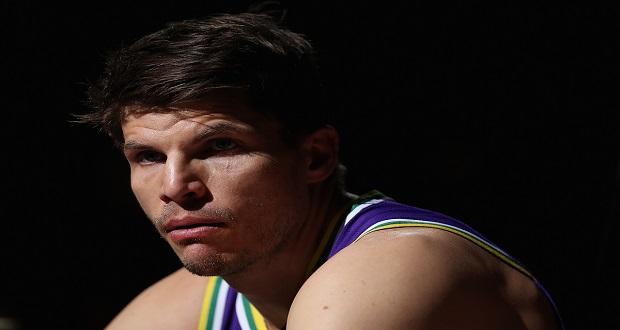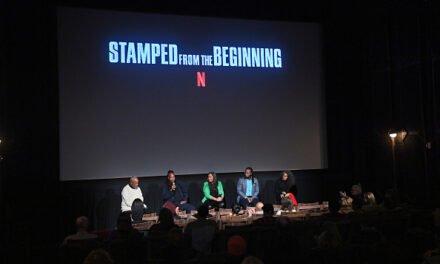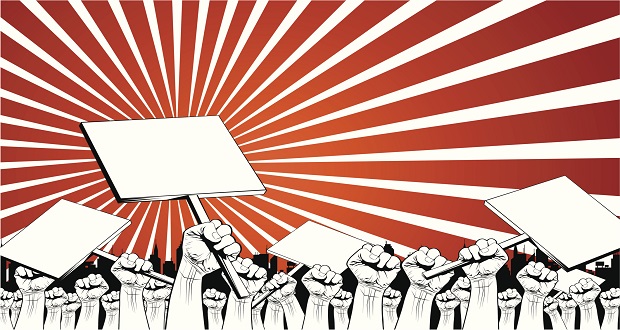
Three days ago, veteran NBA player for the Utah Jazz Kyle Korver wrote a piece in the Players’ Tribune titled “Privileged”. In this thoughtful and challenging piece, Korver reflects on his own journey to being awakened to his white privilege and to his place as a white man in the fight for racial justice in a league that is 75% players of color.
Korver’s piece is provocative in its vulnerability, and it’s this vulnerability that provides a model for us white people on what we can do to become allies in racial justice work. I want to highlight three important steps he took in his own journey that we can take on ours:
Reflection
The power in this piece comes from Korver sharing the reflection process he underwent to understand his white privilege. He doesn’t just share the good parts, the moments he did or said the right thing; he begins with the unflattering or, as he states, cringy moments. He opens the post by discussing his reaction to his teammate Thabo Sefolosha’s experience with police brutality a few years ago that resulted in an injury and night in jail. His reaction was, by his admission, reactionary and lacking in concern for his friend: “Well, if I’d been in Thabo’s shoes, out at a club late at night, the police wouldn’t have arrested me. Not unless I was doing something wrong.”
And when Russell Westbrook, a player for the Oklahoma City Thunder, got into a heated confrontation with a fan during a game against the Jazz a few weeks ago, Korver again reacted with an assumption that Westbrook had provoked it, instead of perhaps giving him the benefit of the doubt. After an investigation, the Utah Jazz banned the fan for life for “excessive and derogatory verbal abuse directed at a player” – abuse that according to Westbrook was racially charged.
Korver took us through his thought processes, which, while cringy, probably reflect how many white people would react, at least inwardly, before taking the time to consider another perspective. And that’s why the piece is important – he shows white folks that we must be reflective about our responses to situations like these. We must be curious about another point of view, and we must consider the biases in our own.
He takes us through these moments, shows readers his ignorance, to hold up a mirror to our own biases, our own ignorance. And then he shares what transformed him: listening.
He takes us through these moments, shows readers his ignorance, to hold up a mirror to our own biases, our own ignorance. And then he shares what transformed him: listening. Share on XListening
Korver’s reflection was accompanied by actively listening to the experiences of those around him, his teammates whose experiences as men of color differed from his own. He shares that after the incident with the fan and Russell Westbrook, the team had a meeting in which these men shared stories of similar encounters.
Korver listened. And then he thought back to his own reaction and to his reaction to Thabo’s arrest, and he felt embarrassed. And then he listened more – not just to the stories but also to the feelings of his peers: “It was almost like…. disappointment, mixed with exhaustion. Guys were just sick and tired of it all.”
Through listening, he was able to acknowledge that this is not just a time for talking—it is time for action. It was time to center the feelings and experiences of his peers and confront his privilege so that he could stand next to them in solidarity.
Accountability
After sharing his process of reflection and listening, Korver names the elephant in the room: his whiteness. He acknowledges that it took him years to understand his privilege, and even now, he has the option to “opt out” of this conversation. But he calls himself and other white people to accountability, both for blatantly racist actions and for the inaction that can create space for toxic behavior.
What I found perhaps most impressive is that he named the symbolic nature of his whiteness – that his action or inaction has power because, as he says, “I have more in common with the fans in the crowd at your average NBA game than I have with the players on the court.”
What I found perhaps most impressive is that he named the symbolic nature of his whiteness – that his action or inaction has power because of it. Share on XKorver knows that fans look at him and look at the league that is 75% players of color and make certain assumptions. And he knows that he has power because of that, and so he uses it, and takes a stance:
“And I believe it’s the responsibility of anyone on the privileged end of those inequalities to help make things right…If you’re wearing my jersey at a game? Know that about me. If you’re planning to buy my jersey for someone else…… know that about me. If you’re following me on social media….. know that about me. If you’re coming to Jazz games and rooting for me….. know that about me… And if you’re claiming my name, or likeness, for your own cause, in any way….. know that about me. Know that I believe this matters.”
I appreciate Kyle Korver for his vulnerability, and for his willingness to stake a claim and commit to action, not just acknowledgment. It is especially apt that he closes out his post by saying he is going to “shut up and listen” because he has more to learn, as all of us white folk do about racism and its impact on who we are, on the communities we live in, on our workplaces, and on the lives of people of color surrounding us. We have more work to do. Let’s follow Korver’s lead and take on the ongoing project of listening, reflection, and accountability.
Let’s follow Korver’s lead and take on the ongoing project of listening, reflection, and accountability. Share on XSee the video below for a follow-up conversation between Korver and three of his teammates Thabo Sefolosha, Ekpe Udoh, and Georges Niang.
In a few days, The Winters Group Principal Strategist Travis Jones and I will be facilitating a seminar called “Working through Whiteness” at the Forum on Workplace Inclusion. We hope that this is just the beginning of confronting and naming white privilege in the D&I space and that we can continue to find ways to do so that meet people where they are, encourage vulnerability, and inspire reflection and action.


















